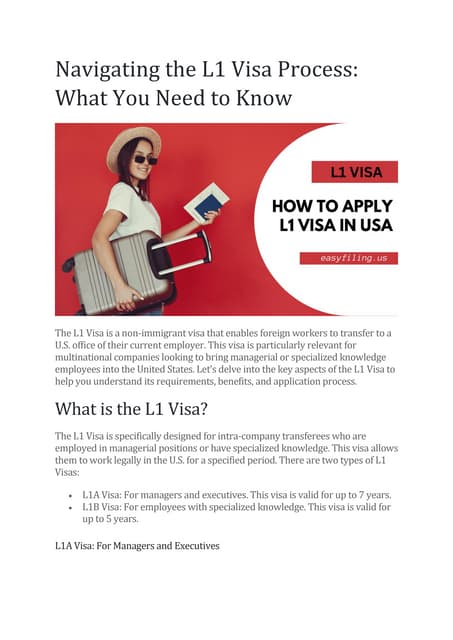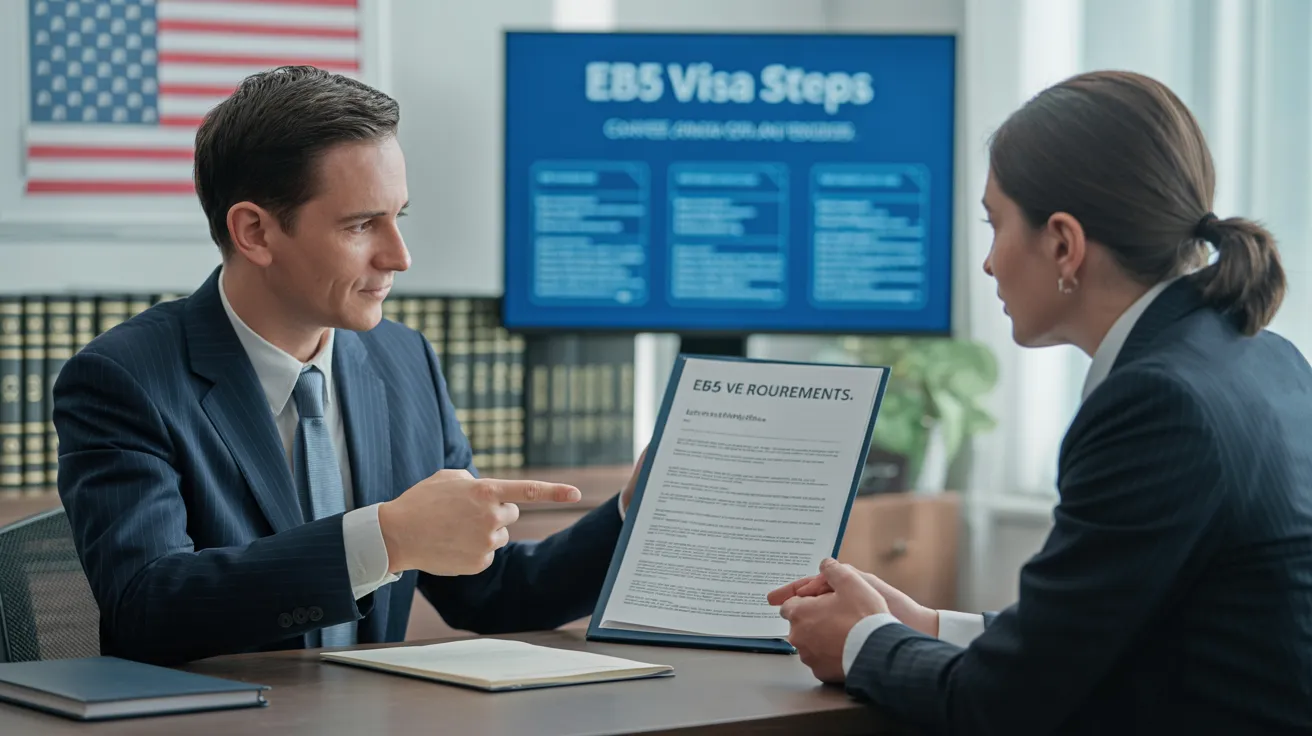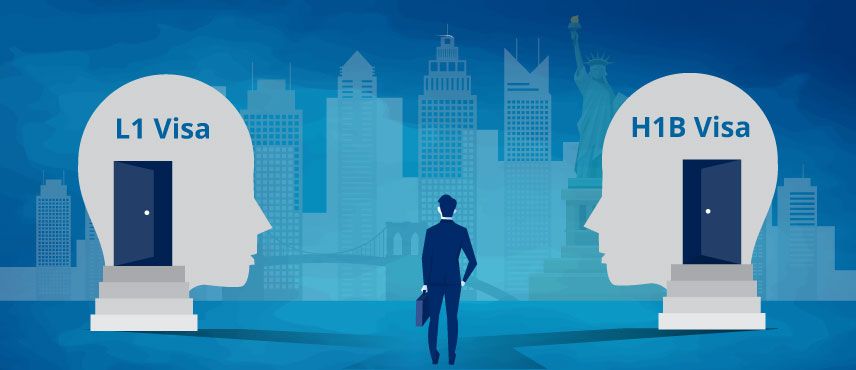L1 Visa Things To Know Before You Get This
Table of ContentsThe 3-Minute Rule for L1 VisaIndicators on L1 Visa You Should KnowTop Guidelines Of L1 VisaSee This Report about L1 VisaThe 5-Second Trick For L1 Visa10 Easy Facts About L1 Visa Explained
Readily Available from ProQuest Dissertations & Theses International; Social Scientific Research Premium Collection. (2074816399). (PDF). Congress. (PDF). DHS Workplace of the Assessor General. (PDF). (PDF). "Nonimmigrant Visa Data". Obtained 2023-03-26. Division of Homeland Security Office of the Inspector General, "Review of Vulnerabilities and Possible Misuses of the L-1 Visa Program," "A Mainframe-Size Visa Technicality".
United State Department of State. Recovered 22 August 2016. "Employees paid $1.21 an hour to install Fremont tech firm's computer systems". The Mercury Information. 2014-10-22. Obtained 2023-02-08. Costa, Daniel (November 11, 2014). "Obscure short-term visas for international technology workers depress salaries". Capital. Tamen, Joan Fleischer (August 10, 2013). "Visa Owners Replace Employees".
About L1 Visa
In order to be qualified for the L-1 visa, the foreign company abroad where the Recipient was utilized and the U.S. business must have a qualifying connection at the time of the transfer. The different kinds of qualifying connections are: 1.
Firm An owns 100% of the shares of Company B.Company A is the Moms And Dad and Company B is a subsidiary. There is a qualifying connection between the two firms and Firm B should be able to fund the Recipient.
Instance 2: Company A is incorporated in the U - L1 Visa.S. and intends to request the Recipient. Firm B is incorporated in Indonesia and uses the Recipient. Firm A possesses 40% of Company B. The staying 60% is owned and controlled by Business C, which has no relation to Firm A.Since Business A and B do not have a parent-subsidiary connection, Business A can not sponsor the Recipient for L-1.
Firm A has 40% of Business B. The staying 60% is possessed by Business C, which has no relationship to Firm A. However, Company A, by official contract, controls and complete manages Firm B.Since Firm A has less than 50% of Business B but handles and regulates the company, there is a certifying parent-subsidiary partnership and Company A can fund the Recipient for L-1.
L1 Visa - An Overview
Affiliate: An affiliate is 1 of 2 subsidiaries thar are both had and regulated by the very same parent or individual, or had and controlled by the same group of people, in essentially the same ratios. a. Instance 1: Business A is included in Ghana and employs the Beneficiary. Business B is incorporated in the united state
Company C, also integrated in Ghana, possesses 100% of Company A and 100% of Firm B.Therefore, Firm A and Business B are "affiliates" or sister business and a certifying relationship exists in between the two companies. Firm B must be able to fund the Recipient. b. Example 2: Firm A is incorporated in the U.S.
Business A is 60% had by Mrs. Smith, 20% had by Mr. Doe, and 20% had by Ms. Brown. Business B is included in Colombia and presently employs the Recipient. Company B is 65% possessed by Mrs. Smith, 15% possessed by Mr. Doe, and 20% had by Ms. Brown. Company A and Business B are associates and have a qualifying connection in 2 different means: Mrs.
The L-1 visa is an employment-based visa category established by Congress in L1 Visa requirements 1970, enabling multinational business to transfer their managers, executives, or essential workers to their U.S. operations. It is frequently described as the intracompany transferee visa. There are two main types of L-1 visas: L-1A and L-1B. These types appropriate for employees hired in various settings within a business.

In addition, the recipient should have operated in a managerial, executive, or specialized worker setting for one year within the three years coming before the L-1A application in the international firm. For brand-new workplace applications, foreign work needs to have remained in a supervisory or executive ability if the beneficiary is pertaining to the United States to function as a manager or executive.
9 Easy Facts About L1 Visa Explained

If granted for a united state business functional for greater than one year, the initial L-1B visa is for up to 3 years and can be extended for an added 2 years (L1 Visa). Alternatively, if the U.S. company is recently established or has actually been functional for less than one year, the preliminary L-1B visa is provided for one year, with extensions readily available in two-year increments
The L-1 visa is an employment-based visa classification established by Congress in 1970, permitting multinational companies to move their managers, execs, or crucial workers to their united state procedures. It is generally described as the intracompany transferee visa. There are two primary sorts of L-1 visas: L-1A and L-1B. These kinds appropriate for workers hired in different settings within a firm.
Our L1 Visa Ideas
In addition, the recipient has to have functioned in a supervisory, executive, or specialized worker placement for one year within the three years coming before the L-1A application in the foreign business. For brand-new workplace L1 Visa requirements applications, foreign work needs to have been in a managerial or executive ability if the recipient is coming to the United States to work as a supervisor or executive.
for up to seven years to supervise the operations of the U.S. affiliate as an executive or manager. If issued for an U.S. firm that has been functional for greater than one year, the L-1A visa is at first approved for as much as 3 years and can be prolonged in two-year increments.
If granted for an U.S. business functional for greater than one year, the preliminary L-1B visa is for approximately three years and can be prolonged for an additional two years. Conversely, if the united state business is recently developed or has been operational for much less than one year, the first L-1B visa is provided for one year, with expansions readily available in two-year increments.